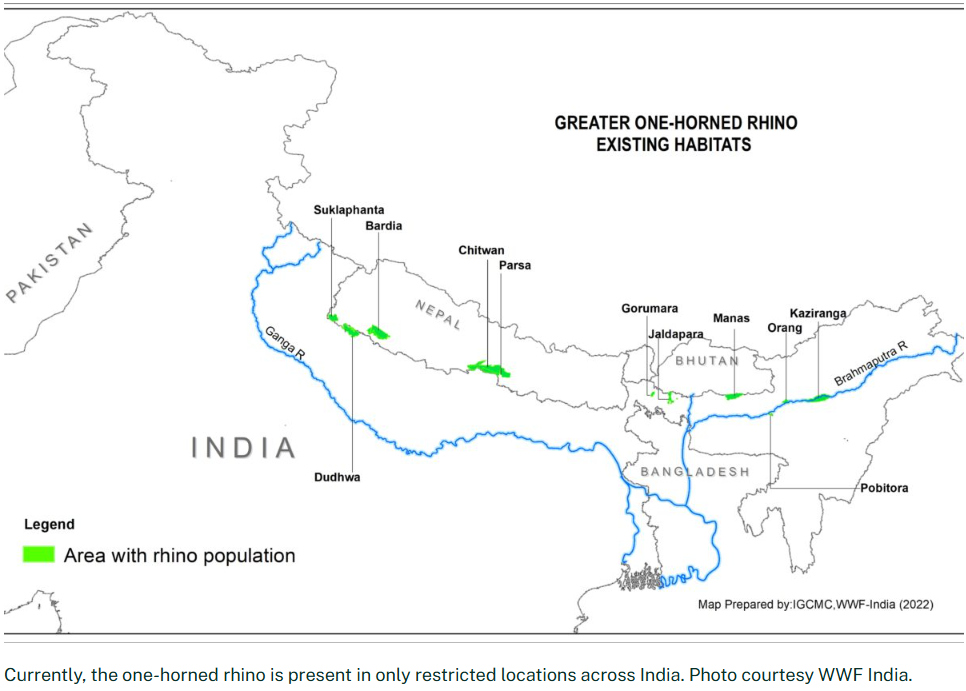RhoDIS (Rhino DNA Index System) India Programme

Why in news :
A genetic analysis has been initiated on samples from 2,573 rhino horns in Assam, originally collected during the 2021 mass destruction of 2,479 horns.The DNA analysis, part of the RhoDIS (Rhino DNA Index System) India programme.
The Rhino DNA Index System (RhoDIS) is a scientific database and forensic tool designed to aid in the conservation and protection of rhinos by creating a unique DNA profile for each individual rhinoceros. Originating in South Africa, the system has now been adopted in India for similar conservation efforts.
Objectives of RhoDIS India:
-
DNA Profiling of Rhino Horns and Individuals:
-
Collect DNA from rhino horns, dung, tissue, or blood.
-
Create unique genetic fingerprints for individual rhinos and their horns.
-
-
Forensic Use in Wildlife Crime Investigations:
-
Identify the origin of seized rhino horns in illegal wildlife trade.
-
Link poached horns to specific poaching incidents or locations.
-
-
Population Monitoring and Conservation Management:
-
Monitor genetic diversity and health of rhino populations.
-
Detect inbreeding or population bottlenecks.
-
Improve breeding and relocation strategies.
-
Implementation in India:
-
Led by the Wildlife Institute of India (WII), Dehradun.
-
Supported by State Forest Departments (e.g., Assam) and central wildlife authorities.
Significance for Assam:
-
Assam has the largest population of Indian one-horned rhinoceroses, especially in Kaziranga National Park.
-
RhoDIS India enables scientific and legal tracking of rhino horns—especially useful during mass horn destruction events like in 2021, where samples from 2,573 horns were preserved.
-
It strengthens anti-poaching efforts by creating a reliable database for horn origin verification.
